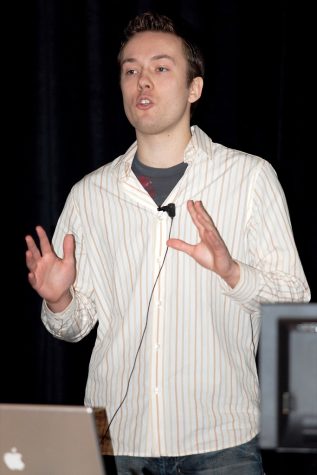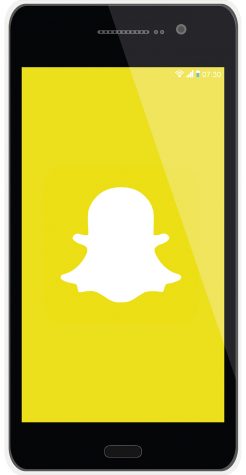Cold weather sparks desire for romance

A large percentage of college students use dating apps like Tinder.
At last, North Carolina’s lingering summer warmth has faded, and a chill permeates the air. Leaves crunch underneath your boots and nights are arriving ever-earlier. But as the cold drives people inside, even the most commitment-loathing amongst us may start yearning for romance and companionship. Forget the holiday season, it’s cuffing season.
Cuffing season is defined by Urban Dictionary as the desire to be “tied down,” or “cuffed,” during the colder months. In an interview with Medical Daily, physician and psychologist Scott Caroll claims humans are psychologically primed to search for partners during the fall and winter. Holidays such as Thanksgiving and Christmas are associated with family and lovers, and there is an evolutionary drive behind seeking a partner during winter.
In our modern era, the rules to the cuffing season have changed. Sure, one can go to a bar and test their luck, but more and more, people prefer to search for romance from the comfort of their own home. In a survey conducted by LendEDU, 72 percent of the millennial college student respondents said they have used dating apps such as Tinder at some point. For Guilford students, the compulsion to resort to Tinder is increased due to the campus’s small student body.
“Since our school is so small, I think everyone wants to find something else that isn’t on campus,” said senior Jackie Sullivan. “And if you don’t know anybody in the area, the only way to really meet people is to go on Tinder, honestly.”
Sullivan is proof of Tinder’s potential success rate. She met her current boyfriend on the application.
“(It happened) by coincidence. Purely coincidence. I almost swiped left on that boy,” Sullivan said. “I was in DC interning for the summer. I didn’t know anyone in the city, so I need to use (Tinder) to meet new people. I matched with this guy, and we bonded over mutual music tastes. We went on a date, and he honestly didn’t like me at first. He thought I was pretentious. But then we went out again, and kept on going out. And here we are.”
Senior Will Spencer has a more skeptical view of the dating apps. He has not used any and finds that using one while attending a school as close-knit as Guilford could breed potential awkwardness.
“(Tinder) feels artificial and fake, and all of the commitments you get from a dating app seem to be temporary,” Spencer said. “I’ve heard a lot of people say they’re afraid to use dating apps because they don’t want people to see them on there, and they don’t want to see their friends or have their friends see them. They don’t want that awkward interaction. They don’t want other people to know they’re searching for some kind of relationship.”
Junior Sarah Smith has been using Tinder since the summer before she entered Guilford. For her, the application also serves as a form of entertainment.
“My friend wanted to make a profile on Tinder, but was 17, so couldn’t. So I made one for her,” Smith said. “We came up with this joke situation where I would interview guys to see if they would be suitable partners for her. I would try to get them to do phone interviews. Long story short, we’re still in contact with two of these guys and have been messing with them for three years.”
While Smith was actively making fun of men on Tinder, she was also seeking potential romance with women. As a lesbian, Smith says that dating apps present a whole suite of issues.
“It’s different because most girls you see on Tinder are looking for someone to (have sex) with them and their boyfriend or they’re just looking for friends. You have to weed those out,” Smith said. “The first person I met up with on Tinder, I actually ended up dating her. I didn’t really like her, but it was one of those situations where she really liked me and I felt bad, and one thing led to another, and then she wanted to marry me. I had to say, ‘I’ve got to cut this off.’”
Smith believes that a lot of people’s hang-ups regarding dating apps come from preconceived notions about the type of people who use them.
“Our generation grew up with those commercials for Christian Mingle and Match.com where you see sad middle-aged people meeting, and it’s kind of hard to break that stereotype in your mind,” Smith said. “But there are weird people everywhere, and I don’t think there’s a higher percentage of weirdos on Tinder. In fact, I think it’s easier to tell when people are weird initially.”
What justifies a swipe left on Tinder? Smith has a system.
“There are a lot of red flags, and you get good at looking for them,” Smith said. “Like if someone only has photos of them with Snapchat filters, you know they are unstable.”
Sullivan also had a personal litmus test. Certain political views would be an instant swipe left, as well as a recurring phenomena in men’s profile pictures.
“If you’re holding a fish in your pictures, I’m swiping left,” Sullivan said.
Editor’s note: This story originally was published in Volume 106, Issue 6 of The Guilfordian on Nov. 15 2019.







